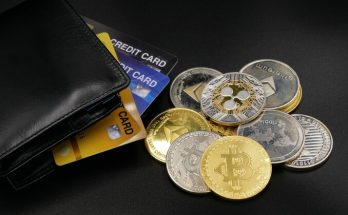The creator economy recently reached a staggering 104 billion mark, yet this is the issue most creators remain tied to platforms that gouge out huge percentages of their profits. What would happen in the event of this being flipped one hundred and eighty degrees?
Web3 employs social tokens to shift the balance of power to favour creators in a community and the communities that support them, and to shift economic power to those who create value. Rather than wishing to have sponsorship arrangements or struggling against algorithm updating, creators are currently able to provide their own digital money, where they reward actual engagement and establish long-term economic bonds with their viewers.
The figures are a good narrative. The social media market in Web3 rocketed to a projected $471 billion in 2034 after a whopping compound growth rate of 51.9 percent in the year 2024, when the market was at a mere $7.2 billion. Even solutions such as Lens Protocol and Farcaster have already achieved 10 million daily active users, which shows that decentralized social experiences are no longer a hypothetical concept.
But what are Web3 social tokens and how do they work in practice?
What Are Web3 Social Tokens?
Social tokens Web3 Social tokens are online securities spaces issued through blockchain-based platforms that represent communal ownership, membership or engagement into a particular group. As opposed to conventional cryptocurrencies that are geared towards mere fiscal activity, these tokens are aimed at increasing interactions and the exchange of value through decentralized networks.
Imagine they are super powered membership cards. Holders can gain access to proprietary content and be part of the community in other ways as by voting on community decisions, winning prizes by participating, and even by even selling tokens to those who are interested in joining the community.
The elegance is a matter of their flexibility. A music artist could release tokens to be used to access concerts early and provision voting privileges on album artwork. There can be tokens released by a fitness coach that enable accessing premium workout plans and direct messaging capabilities. It is unlimited since every community can shape individual rules and rewards.
Social tokens do the opposite of social media. Rather than platforms monetizing the value of user data and engagement, Web3 social tokens provide a way to have communities hold and share that value with the users who are, in fact, generating it.
Web3 Social Tokens And The Development Of Community Economies
Direct Creator Monetization
The old school platforms exploit creators by taking a cut in ads and reducing fee subscription. Web3 social tokens do not require such intermediaries at all.
By minting their tokens, Creators will be able to develop direct economic relationships with their communities. Fans can buy tokens to sponsor their creators and have access to exclusive benefits. This has a direct effect of generating revenue streams that are independent of platform algorithms, or fluctuation of the advertising market.
This is exactly how Friend.tech proved the concept as creators tokenize access to private chatrooms and generate millions in revenue in the first few weeks of launch. The platform revealed enthusiasts are willing to spend higher values to access exclusive offerings where value proposition is direct.
Community ownership and Governance
Web 3 social tokens are the way of turning their passive followers into active stakeholders. The holders of the tokens will have a say in the key decisions affecting the community, including the direction of content and other collaborative ventures.
The form of governance generates stronger interactions as local people truly affect the final results. When they have tokens within an ecosystem of a creator, they have a stake in that ecosystem in terms of financial and emotional backing.
What is obtained are communities that are more cooperatives than fan bases. Members participate in the idea generation, feedback and promotion feedback since the community is growing and having success and they benefit directly.
Incentivized Participation
Intelligent tokenomics models incentivize the beneficial community actions. Rewarding members can be in terms of giving them tokens whenever they share media, leave comments, discuss others or attract new users.
These types of reward systems involve resolving a significant concern of traditional social media: quality interactions. Community members share more in a thoughtful and regular manner when they play and speak since this helps them exchange valuable tokens and not just likes or comments.
Real World Real Successful Token Communities
Transformation of the music industry
Web3 social tokens have been put on display in the music industry. The artists launch tokens that are entry points to exclusive tracks, backstage content, and voting on creative decisions.
Long-term revenues are created through the model that is not based on the traditional forms of sales and streaming royalties. Token sales will allow musicians to finance new projects and develop committed communities, which share in their prosperity.
Gaming and Entertainment
In gaming communities, the social tokens will be utilized to reward high performers, to assist in the funding of prize pools in tournaments, and to provide players with ownership stakes in game development decisions. This is the case with Arcade2Earn, which rewards members with tokens earned in metaverse play-to-earn games.
Such tokens of the gaming industry build closed circles of value where users generate value by skill and play, only to invest those in the gaming ecosystem further with purchases, upgrades, and other assets to the industry.
espace de formation visant à élaborer des réseaux de professionnels en ligne et les groupes for privés d’étude.
Decentralized networking landscapes are developed through the employment of social tokens utilizing professional platforms, e.g., CyberConnect. The members are rewarded with tokens when they share their knowledge, establish meaningful connections, and support the development of the community.
This generates professional networks through values build-up to the players rather than the platform owners and this helps in aligning the interests between the prosperity of the individual and the community.
Hacks Behind Social Tokens
Blockchain Foundations
The Web3 social tokens can be used in public blockchain networks, which guarantee the transparency, security, and immutability of the operation. Every transaction under the tokens is also recorded in distributed ledgers, which is the first form of belief without central authorities.
This openness instills trust in the members of the community since they are in a position to confirm allocation of tokens and community treasury balances as well as governance choices.
Smart Contract Automation
Smart contracts automate manual-intervention-free interaction of complex communities. These are self executing programs that have the capability to automatically distribute rewards, unlock content based on token holder, as well as community governance processes.
As an example, fitness-related communities could use smart contracts as a mode of automatically issuing tokens to members who have fulfilled physical fitness goals or have accomplished health-related milestones. This automation reduces the administrative cost as it does not compromise with a fair and consistent distribution of the rewards.
Tokenomics Design
An efficient token economy is compromised by proper strategizing involving supply, supply, and utility mechanisms. The typical successful projects put into place dual tokens models that maintain stability and growth rewards.
Other groups ensure token value through buyback systems, and some offer staking bonuses to help people hold longer. The trick is then to couple the mechanisms of tokens with community objectives and the incentives of its members.
Issues and Pros and Cons
Market Volatility
Heads are subject to dramatic changes in value depending on the market situation and public opinion. This volatility throws both those who create and those within the community into an uncertain position that relies on the value of tokens.
In response, successful token communities put in place a deep set of utility suites that create value that is unrelated to price appreciation. As long as being unlocked with tokens leads to tangible rewards and experiences, they can sustain their value in times when the market is not so great.
Regulatory Uncertainty
Regulation around social tokens is also evolving and getting complex. Tokens have been treated differently by different jurisdictions which pose a compliance problem to global communities.
Designers and token ecosystems should be current on pertinent laws and be mindful of the legality of the structure and method of tokens.
Technical Barriers
Blockchain technology remains technically difficult to access by the general population. Newcomers to Web3 ecosystems may be scared by wallet management and gas fees and complexities of a transaction.
Nevertheless, these impediments are quickly being resolved as user interface enhancements, layer-2 scaling technology and more open up the social tokens in Web3 to wider audiences.
Community Economies of the Future
Social tokens in Web3 are not only new means of monetization. They are precursors of completely new economic mechanisms where the focus is on creating value within communities rather than deconstructing them to extract value in platforms.
With the global crypto market hitting an estimated $3.4 trillion by 2025, one of the roles social tokens may increasingly have is on the way creators, communities, and businesses relate to each other in an economic fashion.
Those communities that design their token mechanics thoughtfully, in terms of actual value addition, not speculative trading will be the most successful ones. Tokens that unlock real utility and establish meaningful participation inducements and develop sustainable economies that provide all stakeholders with value.
These community economies are not going to supplant established business paradigms in one step, but they are establishing very attractive substitutes that are returning power to those who create value and become active participants.
The change is already in process. The creators that adopt Web3 social tokens today are those who take their place at the leading edge of a sea change in the origins of economic value in online communities. The question lies not in whether this transition will occur, it is whether you will be involved in the development of the future of community-driven economies.



